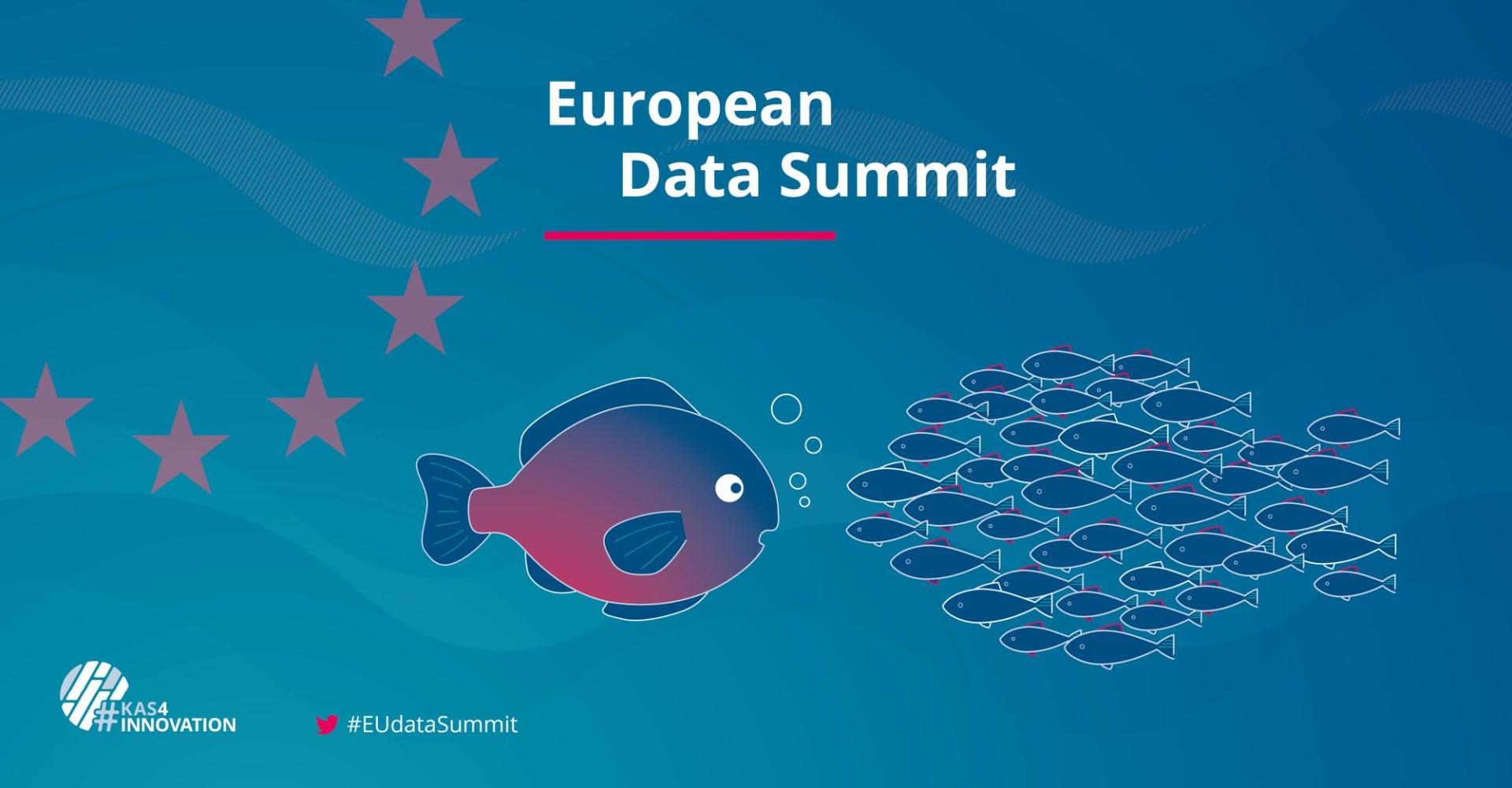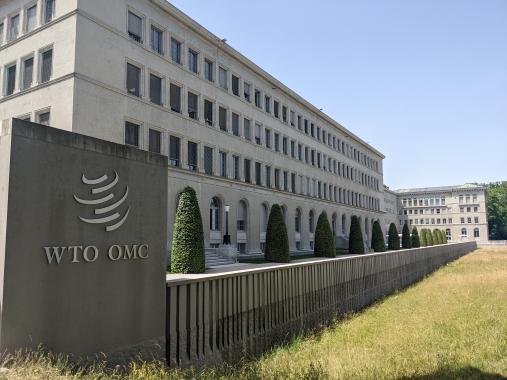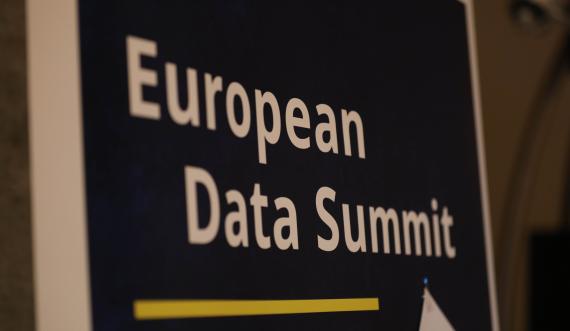We need to find our own European path by channelling the exchange and broad use of data while safeguarding high ethical, data protection and safety standards.
(in her political guidelines for the 2019-2024 Commission)
At a glance
- The concept of “data” can be understood as any digital representation or compilation of actions, facts or information in the form of sound, image or audiovisual material.
- In the digital world, data is a decisive factor for economic success. However, digital markets can only function if they are supported by strong policies that promote competition.
- Promoting competition in the handling of data should counter monopoly-forming forces and thus open up opportunities and potential for innovation.
- In order to fully tap into and maximise the economic potential of data, it needs to be recognised as an economic asset and requires a binding legal framework for its use.
- The Konrad-Adenauer-Stiftung strongly advocates for the digital single market and discusses legal concepts that facilitate the distribution of rights to access, use and reuse digital data.
Content
1. Competition law: indispensable for a successful economic policy
2. Digital markets need strong pro-competition policy
3. The economic potential of data still needs to be unlocked
4. Our offers and projects on the topic
5. Publications, events and media contributions on the topic
Digital transformation has proven to be a game changer for society's ability to tackle major challenges - from productivity and growth to tackling climate change and improving our public services. Digital technologies are at the heart of our progress and ambitions, but we must face new challenges for our democracies, economies and societies.
Competition law: indispensable for a successful economic policy
We aim to reestablish competition policy as a central pillar of the social market economy and bring it back to the forefront of economic policy. The current challenges — most notably the abusive practices of dominant digital platforms (gatekeepers) — can only be effectively addressed through international coordination, a modern regulatory framework, and rigorous enforcement of the legal framework, particularly the Digital Markets Act and the Digital Services Act.
In the absence of an adequate regulatory framework, markets fail, leading to dependencies with profound implications for the economy, society, and the democratic order. Competition policy is therefore an indispensable element of sound economic policy. The Konrad-Adenauer-Stiftung is committed to advocating for a proactive competition law framework, enforced by strong and independent antitrust authorities.
Digital markets need strong pro-competition policy
Digital markets can only function well if they are supported by a strong pro-competition policy. This is to counter power-concentrating and monopoly-forming forces so as to open up possibilities for innovation. That is why we consider competition policy aspects to be at the heart of debates on the European data strategy.
With our products, be it events or political analyses, we attempt to depict the complexity of the data spectrum and develop political guidance for the Digital Single Market. Since the data spectrum (open-shared-closed, according to the British Open Data Institute) determines the use of data. The spectrum defines whether the data is open and accessible or closed and protected by regulation, or whether certain data can be used in certain models despite being protected.
The economic potential of data still needs to be unlocked
The economic potential of data can only be tapped into when it is recognised by society as an economic asset, and can be used in a clear legal framework. Both aspects form part of a political, economic and legal discussion.
As a political foundation, the Konrad-Adenauer-Stiftung would like to use its studies on the Digital Single Market, in line with the principles of social market economy, to put potentially cross-sectoral legal concepts up for discussion, which facilitate the assignment of rights of access, use and re-use of digital data.
Our offers and projects on the topic
Event series
Once a year in autumn, the Konrad-Adenauer-Stiftung organises the European Data Summit. The three-day international conference is one of our flagship events and is considered an important event format around digital and data topics. The event will take place in Berlin and digitally.
European Data Summit
The European Data Summit addresses the political prerequisites for a digital single market in Europe and provides new impetus and regulatory approaches for the European data economy. The three-day event will bring together experts who have a significant influence on the new competition law framework in Europe. These range from high-level policy makers, European regulators and data activists to renowned competition economists.
Selected publication projects
Beyond individual publications and events on certain aspects of data and competition policy, the Konrad-Adenauer-Stiftung has implemented a range of different publication projects on the topic, a selection of which we present to you here.
Data Protection Law and Data Trust
Europe has shown confidence in digital policy with the General Data Protection Regulation (GDPR). An improved understanding of issues pertaining to data protection and the extraterritorial impact of European data protection standards are important milestones. The current picture of data protection is a mixed one: Some deem the basic right to be sacrosanct. While others consider EU data protection law in its specific form to be inviolable.
Data trustees are institutions that bring together data providers and data recipients, either by establishing direct contact between these two parties so that data can be exchanged with each other (broker function), or by receiving data from the data provider and passing it on to the data recipient (seller function).
With our publication articles on data protection and data trust topics, we would like to provide you with detailed information on different perspectives and the current status of relevant debates on these controversial topics.
Learn more about the publications on data protection law and data trust
Open Data and Open Government
Information that can be processed electronically plays an important role in our society. The basis for this information is data. It is an inexhaustible, renewable resource that generates added value primarily through joint use, and which no longer only affects politics, science and business in general, but citizens directly.
The term “open data” describes a concept in which this machine-readable and structured information can be freely used, re-used and disseminated by anyone through the use of open usage rights. Our publication series on “open data” looks at different aspects of this topic.
Competition Policy in the Digital World
Europe has shown confidence in digital policy with the General Data Protection Regulation (GDPR). An improved understanding of issues pertaining to data protection and the extraterritorial impact of European data protection standards are important milestones. The current picture of data protection is a mixed one: Some deem the basic right to be sacrosanct. While others consider EU data protection law in its specific form to be inviolable.
Data trustees are institutions that bring together data providers and data recipients, either by establishing direct contact between these two parties so that data can be exchanged with each other (broker function), or by receiving data from the data provider and passing it on to the data recipient (seller function).
With our publication articles on data protection and data trust topics, we would like to provide you with detailed information on different perspectives and the current status of relevant debates on these controversial topics.
Learn more about the publications on data protection law and data trust





























